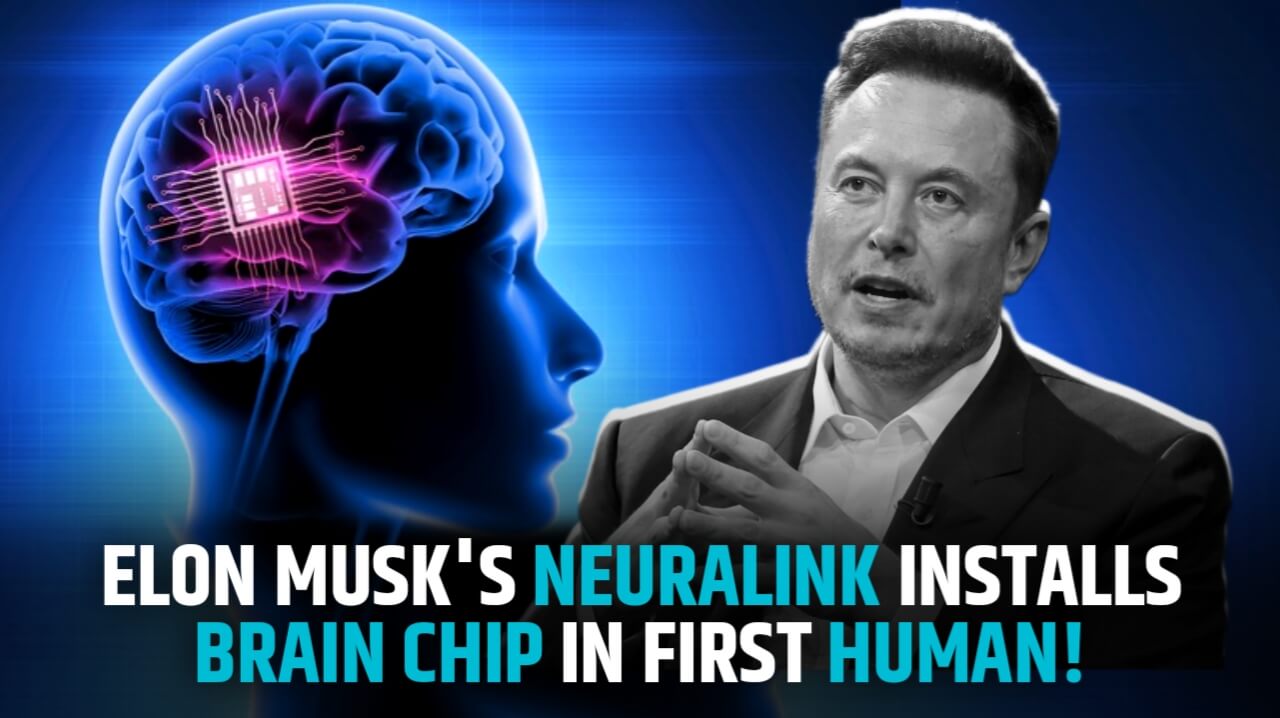Elon Musk’s Neurotechnology company, Neuralink, made history on January 29th by successfully implanting its brain chip into a human volunteer. This marks a significant advancement in the field of brain-computer interfaces (BCIs) and holds immense potential for individuals with neurological disorders and beyond.
“The first human received an implant from Neuralink yesterday and is recovering well,” Musk proudly announced on X. “Initial results show promising neuron spike detection,” he added, highlighting the early success of the device in recording brain activity.
The first human received an implant from @Neuralink yesterday and is recovering well.
Initial results show promising neuron spike detection.
— Elon Musk (@elonmusk) January 29, 2024
This achievement comes on the heels of Neuralink receiving regulatory approval in the United States last year to begin human trials. The implanted chip, part of the company’s PRIME Study, is designed to help individuals with tetraplegia regain control of devices like robotic limbs or assistive technology through the power of thought.
Also Read: Tesla Unveils Optimus Gen 2: The New AI Humanoid Robot
While details about the specific patient and the implantation process remain undisclosed, Musk’s positive update indicates a smooth operation and promising initial data.
What makes this news significant?
Neuralink’s brain implant technology has the potential to revolutionize various aspects of human life. Here are some key implications:
- Restoring lost abilities: For individuals with paralysis or other neurological conditions, BCIs like Neuralink’s could offer groundbreaking solutions for regaining control and independence. Imagine controlling prosthetic limbs, wheelchairs, or even communication devices directly with your thoughts.
- Enhanced human capabilities: Beyond therapeutic applications, BCIs could potentially augment human cognitive abilities. Imagine accessing information directly from the brain, enhancing memory, or boosting focus through neural stimulation.
- Ethical considerations: While the advancements are exciting, ethical concerns surrounding BCIs cannot be ignored. Issues like data privacy, brain hacking, and potential misuse of the technology necessitate careful discussions and regulations.
The first @Neuralink product is called Telepathy
— Elon Musk (@elonmusk) January 29, 2024
The future of brain-computer interfaces:
Neuralink’s first human implant represents a significant step forward, but it’s only the beginning. Further research and development are crucial to refine the technology, address ethical concerns, and ensure equitable access. The future of BCIs is brimming with possibilities, and Neuralink’s achievement paves the way for a future where the human brain and technology can interact in ways we can only begin to imagine.




